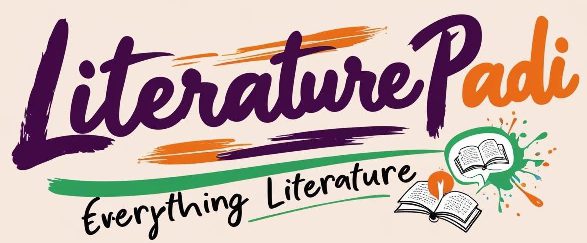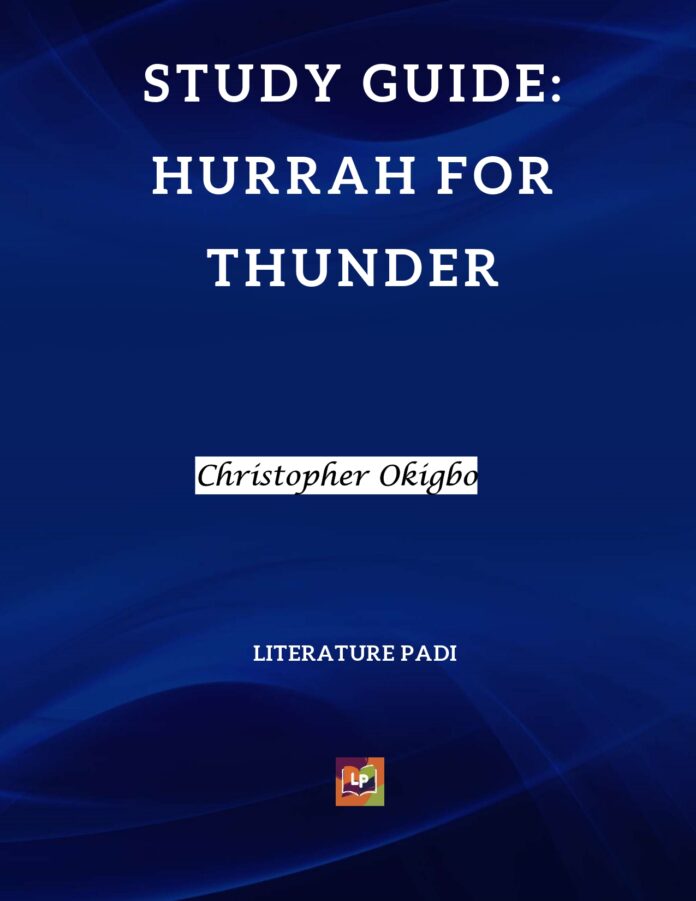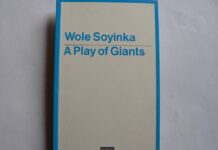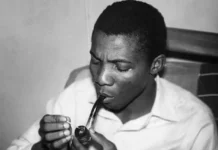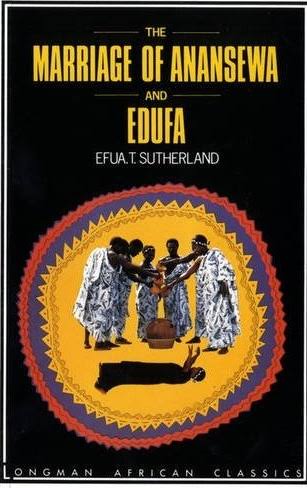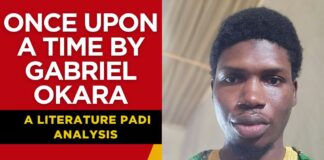🎥 We’re cooking something delicious for you on our YouTube channel. In the coming days, you will learn SSCE literature texts like you're in class 📚✍🏽
Be part of this new journey we are about to embark on.
🔔 Subscribe Now
Poem Text
Hurrah for Thunder
WHATEVER happened to the elephant –
Hurrah for thunder –
The elephant, tetrarch of the jungle:
With a wave of the hand
He could pull four trees to the ground;
His four mortar legs pounded the earth:
Wherever they treaded,
The grass was forbidden to be there.
Alas! the elephant has fallen –
Hurrah for thunder –
But already the hunters are talking about pumpkins:
If they share the meat let them remember thunder.
The eye that looks down will surely see the nose;
The finger that fits should be used to pick the nose.
Today – for tomorrow, today becomes yesterday:
How many million promises can ever fill a basket . . .
If I don't learn to shut my mouth I'll soon go to hell,
I, Okigbo, town-crier, together with my iron bell.
— Christopher Ifekandu Okigbo
About the Poet
Christopher Ifekandu Okigbo (1932–1967) was a Nigerian poet, teacher, and librarian, widely regarded as one of the most significant postcolonial English-language African poets and a major modernist writer of the 20th century. Okigbo was born in Ojoto, Anambra State, Nigeria. He was educated at Government College Umuahia and University College Ibadan, where he studied Classics after initially pursuing Medicine.
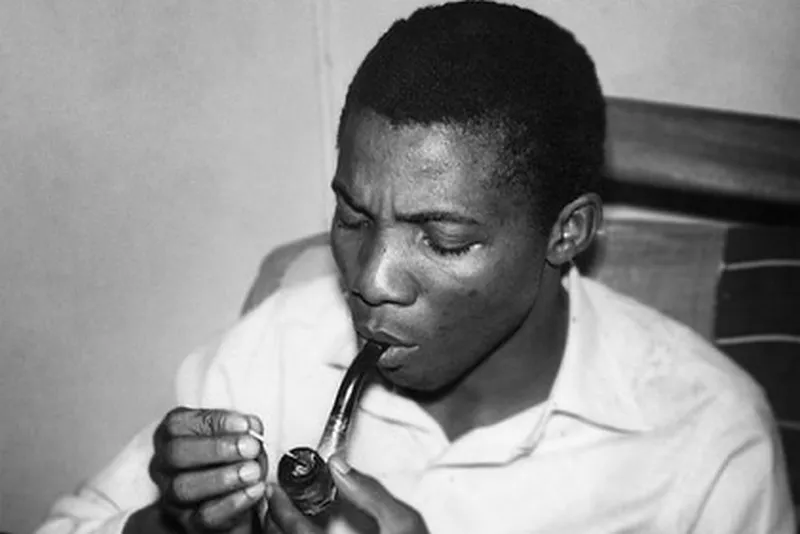
His early exposure to both Western literary traditions and Igbo cultural heritage shaped his poetic voice. It allowed him blend modernist techniques with African oral traditions. Okigbo was deeply involved in Nigeria’s literary scene. He contributed to journals like Black Orpheus and co-founded the African Authors Association.
Christopher Okigbo was a committed Biafran; he died in 1967 fighting in the Nigerian Civil War.
Background of “Hurrah for Thunder”
“Hurrah for Thunder” is part of Okigbo’s posthumously published collection Labyrinths with Path of Thunder (1971), which incorporates earlier works from Heavensgate (1962), Limits (1964), and the Path of Thunder sequence (1965–67). The Path of Thunder poems, which include “Hurrah for Thunder,” are noted for their socio-political focus, evident in Okigbo’s direct engagement with Nigeria’s turbulent political landscape.
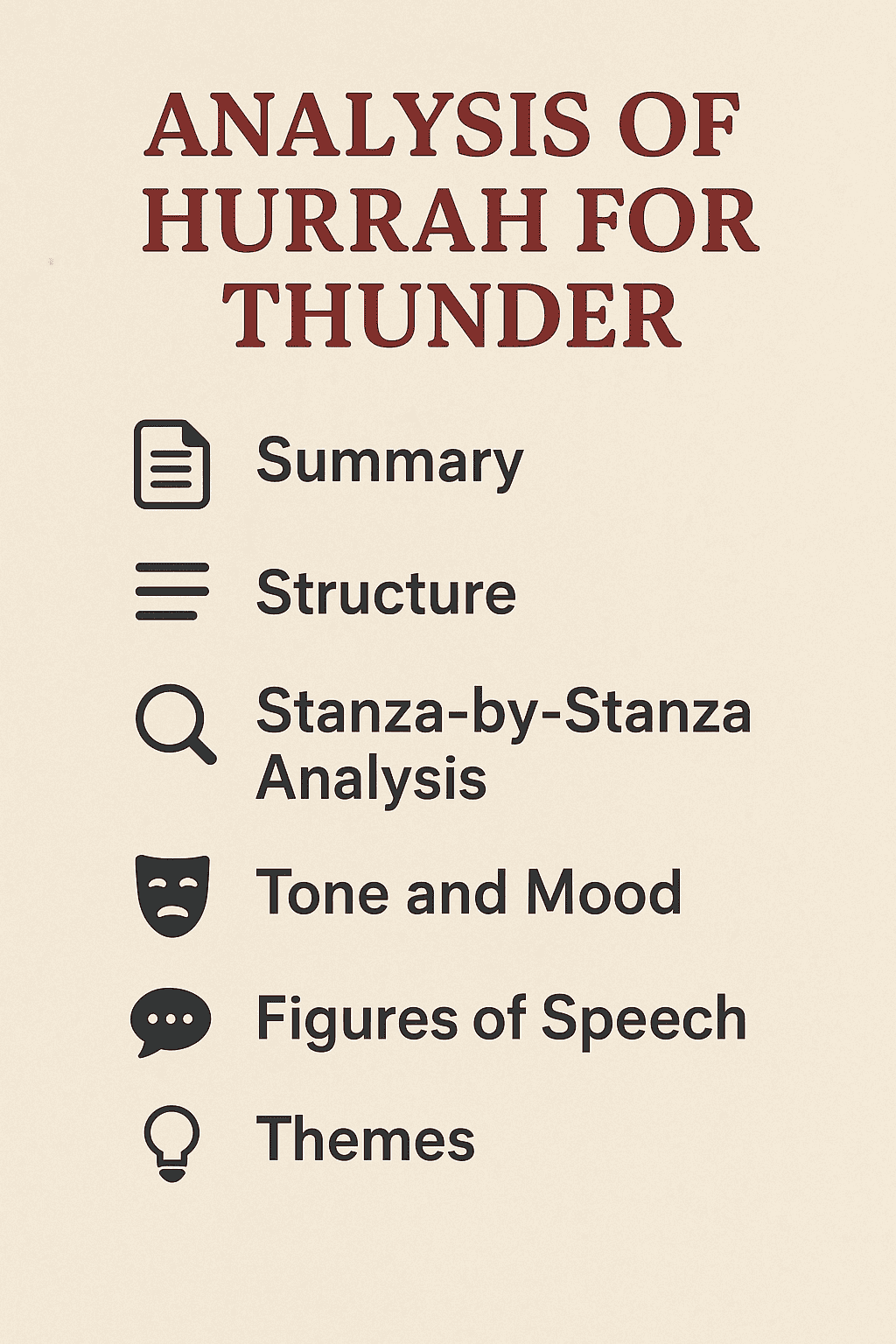
“Hurrah for Thunder”, which was written during the mid-1960s, portrays the political and social upheaval in Nigeria leading up to the Nigerian Civil War (1967–1970). The poem uses the metaphor of a fallen elephant to symbolise a once-powerful authority, and thunder to represent sudden, transformative change, to comment on the collapse of leadership and societal order. The fall of the elephant, in more precise terms, demonstrates the collapse of the dictatorial political system of Nigeria’s First Republic. The thunder refers to the violent military take-over of governance of January, 1966 coup.
The poem’s refrain, “Hurrah for Thunder,” juxtaposes celebration and destruction, wherein Okigbo’s ambivalence about change and his critique of opportunism is captured. While people celebrate the fall of the civilian government, Okigbo warns the new state actors to learn a thing or two from the fall of the previous government, which was characterised by oppression and its unfulfilled “many million promises” (l. 16). He hopes they do not become the very people and/or system they ousted.
In this poem, Okigbo situates the role of a writer as the society’s conscience, in the manner of a “town-crier”. He is determined to voice societal truths as a poet, even at personal risk (“hell”).
Get the Full Analysis in PDF
Enjoying this breakdown? What you’re reading is just part of the full experience. The premium PDF edition brings everything together in one seamless, distraction-free document that has the poem, themes, structure, and full commentary. If you’re studying seriously, this is the version you’ll want.
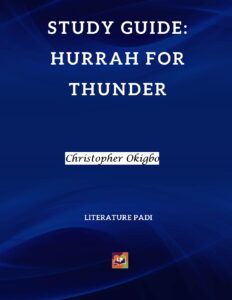
Structure of “Hurrah for Thunder”
“Hurrah for Thunder” by Christopher Okigbo is an eighteen-line poem, written in a free verse structure with seven loose stanzas that combine narrative, metaphor, and aphoristic reflection. Each stanza condenses a lot of meaning as it moves quickly from image to moral lesson.
The poem employs the use of proverbial language in lines 13-16 to first warn about repeating the same process and pattern of dictatorial leadership, and second, to express the relativity of history; that the new power holders would soon become history themselves like the ones they ousted and that they would be judged by what they did that very moment, whether or not they lived up to the expectations of the people, or if they did fulfill their promises to the people.
Structurally, the poem has more couplets as stanzas. It is only in the case of stanza two that there is a deviation from the pattern established in the first stanza and continued in five other stanzas. Stanza two has six lines, which is explainable because it does provide a backdrop for the fallen elephant; it magnifies the oppressive deeds of the powerful and dominant “tetrarch of the jungle” that prompted its supplanting by a higher, albeit not necessarily corrective, force.
Receive Literary Updates through our Social Media Channels:
- WhatsApp: Literature PADI
- Telegram: Literature PADI
- YouTube: @literaturepadi
- Facebook: Literature PADI
